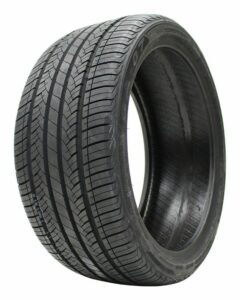
Stop That Endless Runny Nose Flowing in Its Tracks – Little-Known Tricks You Haven’t Tried
Lifestyle adjustments, over-the-counter meds, saline rinses and natural remedies let you take back control so you can finally stem that infuriating overflow of drippy mucus from your irritated nasal passages.
Related Topics (Sponsored Ads):

What’s Behind a Runny Nose?
A runny nose refers to thin, excessive mucus produced by nasal membranes that overflows from the nostrils. This overproduction happens when something irritates or inflames the mucous membranes lining the nasal passages.
The nose and sinus cavities produce around 1-2 quarts of mucus secretions per day under normal conditions. Tiny hair-like cilia sweep this mucus to the back of the throat where it’s swallowed. You rarely notice.
But when the nasal membranes swell and secrete extra mucus in response to irritants or inflammation, there can be too much volume for the cilia to clear quickly. The excess then spills forward out the nostrils.
Mucus is 97% water and 3% solids like antibodies, proteins, minerals and enzymes. This composition can change when infection, illness or inflammation strikes. Extra water is secreted thinning the mucus into a runny consistency. This impacts the cilia’s clearance capacity.
Additionally, inflamed tissues themselves produce more mucus volume as part of the body’s innate immune response trying to capture and wash away allergens, microbes or irritants. Between excess volume and altered consistency, mucus drips forward out the nose despite efforts to clear it.
Key Causes of Pesky Runny Noses
Pinpointing what exactly triggers excess mucus production allows you to avoid triggers whenever possible and target treatments correctly. The most common catalysts behind runny nose misery include:
Allergies
Allergens like pollen, pet dander, mold and dust mites cause histamine release in the nasal tissues of sensitive individuals resulting in inflammation. Swelling reduces airflow passages and overstimulates mucus production trying to trap and flush out allergens.
Respiratory Infections
Both bacterial and viral respiratory bugs irritate nasal membranes. The immune system responds by boosting mucus and water output trying to trap and eject pathogens through sneezing, coughing and runny discharge.
Environmental Irritants
Common irritants like tobacco smoke, strong fumes like bleach, smog or chlorine can inflame nasal tissues triggering swelling, inflammation and reactive excess mucus production trying to dilute and flush away the irritant.
Hormones
Hormonal changes in pregnancy or menopause impact mucus volume. Estrogen stimulates goblet cells lining the nose producing excess thin secretions that can run out the nose.
Drug Side Effects
Some blood pressure and arthritis medications promote inflammation or swelling affecting nasal tissues and mucus production. Chemotherapy severely dries nasal tissues spurring reactive mucus secretion.
Weather Changes
Cold, dry air or suddenly shifting humidity levels irritate nasal membranes by either drying them out or enabling swelling. The body counters by producing more protective mucus.
Stress and emotions
Strong emotions trigger nerve signals that swell nasal tissue membranes and boost mucus secretion. Crying from sadness or joy both trigger a drippy nose through this connection between nerves and nasal membranes.
So as you experience recurring issues with a runny nose take notes about potential triggers in your diet, environment or health condition changes to identify probable culprits guiding treatment approaches.
A Multitude of Treatments for Relief
Whether due to allergies, colds, hormones or other factors behind out-of-control mucus production, having a persistently runny nose is downright unpleasant. As mucus overflows, it runs over the lips even with repeated nose blowing. Thick discharge can also clog nasal passages causing embarrassing mouth breathing. Plus mucus dripping down the throat often triggers coughing or sore throat.
Luckily there are many medication, home remedy and lifestyle options providing relief for misery-inducing mucus overload behind runny nose struggles. Potential solutions include:
Over-the-Counter Medications
Several types of medications available without prescription can temporarily dry up unwanted dripping discharge by reducing swelling or thinning excess mucus secretions. Choices include:
- Decongestant pills or nasal sprays containing pseudoephedrine or phenylephrine ease swelling. But they can only be used for 3 days before causing “rebound swelling”.
- Antihistamine pills, liquids or nasal sprays block histamine’s ability to trigger mucus production providing allergy relief. Newer less-drowsy versions are preferred.
- Ipratropium nasal spray blocks runny discharge from allergies or colds without many side effects. Effects last 4 to 6 hours.
- Cromolyn sodium stabilizes mast cell membranes in nasal tissue preventing the release of histamine and other chemicals that stimulate mucus production during allergic reactions. Must be used prophylactically.
- Nasal saline rinses or sprays help thin out thicker mucus discharge by adding moisture and remove allergens. Natural low-risk option.
Lifestyle Measures
Simple daily health practices can also substantially cut back on mucus volume stopping a chronically runny nose at the source:
- Use a humidifier. Keeping indoor air moisture between 40-50% prevents drying and swelling of delicate nasal tissue reducing the impulse to secrete more protective mucus. This cuts back on thin drippy discharge.
- Stay well hydrated by drinking lots of fluids. Proper hydration keeps normal mucus secretions thinner allowing tiny hair-like cilia to sweep secretions away more easily without excess dripping out the nostrils.
- Rinse sinuses daily using a nasal irrigation pot or bottle to flush out excess mucus from sinus cavities stopping accumulation that can overflow. Saline rinses also reduce inflammation.
- Consider guaifenesin tablets long term. This oral expectorant helps thin out excessively thick mucus secretions in the nasal passages and throat preventing complications like post-nasal drip and reducing odds of a runny nose. Can be used daily.
- Drink hot tea with honey. The heat and steam ease nasal congestion while the honey acts as a mild anti-inflammatory. This combination helps calm irritated membranes and thin out mucus drippage for reduced runniness symptoms.
- Try a nasal dilator strip. Adhesive devices like Breathe Right pull open nasal passages improving airflow and preventing mucus membrane swelling and fluid backup. This reduces odds of problematic mucus overflow.
By implementing healthy self-care habits, many find they can minimize excess mucus production stopping a chronically runny nose at the source.
When to Seek Medical Care
For most instances of uncomplicated runny nose whether from a cold virus, allergies or other triggers, self-care measures can effectively manage symptoms. However it is wise to consult a physician promptly if you experience:
- High fever, headache, facial swelling or pain along with congestion
- Symptoms lasting longer than 10-14 days without improvement
- Recurrent nosebleeds along with chronic runny nose
- Signs of moderate to severe dehydration from copious dripping mucus
Persistent or worsening nasal/respiratory symptoms, especially when accompanied by fever or debilitation, warrant medical assessment to rule out complications like chronic sinus infection. Rarely, frequent runny nose can stem from cerebrospinal fluid leaks, nasal tumors or other serious disorders requiring diagnosis and specific treatments.
Don’t Hesitate to Regain Comfort
So while a runny nose can certainly be bothersome, an array of available medication, home remedies and preventative health measures offer the power take back control stopping the incessant dripping in its tracks. Identify underlying triggers, implement daily healthy habits, utilize pharmacological treatments judiciously when needed and don’t hesitate to seek medical advice for unusual or worsening symptoms. Following this comprehensive approach promises you can successfully stem that infuriating flow restoring comfortable nasal functioning once more!
Related Topics (Sponsored Ads):
Discover More






